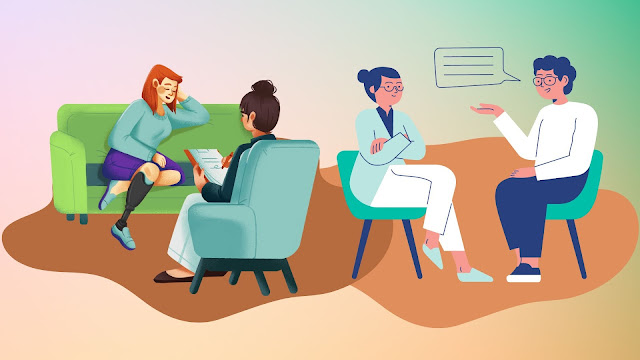TABLE OF CONTENT
- What is Depression
- Symptoms of Depression
- Couses Of Depression
- How to overcome depression
- What is Depression
- Symptoms of Depression
- Couses Of Depression
- How to overcome depression
What is Depression:
Symptoms of Depression:
Depression can cause a range of symptoms that can vary from person to person. Some common symptoms of depression include:
- Persistent feelings of sadness, hopelessness, or emptiness.
- Loss of interest or pleasure in activities that were once enjoyed.
- Changes in appetite or weight.
- Sleep disturbances, such as insomnia or oversleeping.
- Fatigue or loss of energy.
- Feelings of worthlessness or guilt.
- Difficulty concentrating or making decisions.
- Physical symptoms, such as headaches or digestive problems.
- Recurrent thoughts of death or suicide.
Depression symptoms in children and teens:
Depression symptoms in children and teens may include:
- Persistent feelings of sadness, hopelessness, or emptiness.
- Loss of interest in activities they used to enjoy.
- Changes in appetite or weight.
- Insomnia or oversleeping.
- Lack of energy and fatigue.
- Difficulty concentrating, making decisions, or remembering things.
- Feelings of worthlessness or guilt.
- Irritability or anger.
- Physical symptoms such as headaches or stomachaches.
- Thoughts of death or suicide.
It is important to note that not all children or teenagers with depression will experience all of these symptoms, and symptoms may vary in severity.
Depressin Symptoms in Adults:
Depression symptoms in adults may include:
- Persistent feelings of sadness, hopelessness, or emptiness.
- Feeling unloved.
- Loss of interest in activities they used to enjoy.
- Changes in appetite or weight.
- Insomnia or oversleeping.
- Lack of energy and fatigue.
- Difficulty concentrating, making decisions, or remembering things.
- Feelings of worthlessness or guilt.
- Irritability or restlessness.
- Physical symptoms such as headaches or body aches.
- Thoughts of death or suicide.
It's important to note that not everyone with depression will experience all of these symptoms, and the severity of symptoms can vary. If you or someone you know is experiencing symptoms of depression, it's important to seek professional help from a mental health provider.
Couses Of Depression:
Depression can be caused by a combination of genetic, environmental, and psychological factors. Some common causes of depression can include:
- Nagative Thinking: Negative thinking can increase depression because it can trigger and sustain a cycle of negative thoughts and emotions that reinforce each other. For example, if someone consistently thinks negative thoughts about themselves, their situation, or their future, it can lead to feelings of hopelessness, helplessness, and worthlessness, which are common symptoms of depression. These negative thoughts can also lead to behaviors that reinforce the depression, such as social isolation, avoidance of pleasurable activities, or decreased productivity. Over time, the cycle of negative thoughts and behaviors can become deeply ingrained and difficult to break, contributing to the development and persistence of depression.
- Brain chemistry: Imbalances in certain chemicals in the brain, such as serotonin and dopamine, can contribute to depression.
- Life events: Traumatic or stressful life events, such as divorce, breakup, death of loved one, relationship breakup, or job loss, financial loss can trigger depression.
- Chronic medical conditions: Chronic illness or chronic pain can increase the risk of developing depression.
- Substance abuse: Drug or alcohol abuse can contribute to the development of depression.
- Hormonal changes: Changes in hormone levels, such as those that occur during pregnancy or menopause, can trigger depression.
- Social isolation: Lack of social support or feelings of social anxiety isolation can contribute to depression.
It's important to note that depression is a complex condition and may have multiple contributing factors. If you or someone you know is experiencing symptoms of depression, it's important to seek professional help from a mental health provider.
How to overcome depression:
Overcoming depression often requires a combination of different approaches, and the most effective treatment will vary depending on the individual. Here are some common strategies that may be helpful in overcoming depression:
- Therapy: Psychotherapy, such as cognitive-behavioral therapy (CBT), can help individuals identify negative thought patterns and develop coping strategies to manage symptoms.
- Medication: Antidepressant medications can be helpful in reducing symptoms of depression, particularly in combination with therapy. Medicines can help reduce depression temporarily but never provide a permanent solution.
- Lifestyle changes: Regular exercise, a healthy diet, and good sleep habits can all help improve mood and reduce symptoms of depression.
- Social support: Building and maintaining strong relationships with friends and family can help reduce feelings of isolation and provide a support system for those struggling with depression.
- Mindfulness and relaxation techniques: Mindfulness meditation, yoga, and other relaxation techniques can help reduce symptoms of depression and manage stress.
- Self-care: Engaging in activities that bring joy and practicing self-care can help individuals with depression feel better about themselves and improve their overall sense of well-being.
- Mental Wellness: Maintaining good mental wellness habits can help to overcome depression by improving mood, reducing stress, and increasing resilience. Some strategies for improving mental wellness include regular exercise, a healthy diet, sufficient sleep, practicing relaxation techniques such as meditation, staying socially connected with loved ones, and seeking professional help if needed. Additionally, engaging in activities that bring joy or a sense of accomplishment can also improve mental wellness and help combat depression.
It's important to remember that overcoming depression can be a gradual process, and seeking help from a mental health & wellness professional can be an important first step in getting on the path to recovery.














0 comments:
Post a Comment
Thank you for your response